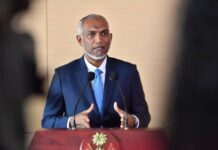Nigeria and other member countries of the African Telecommunications Union (ATU) have launched the first set of spectrum recommendations that focuses on transforming Africa into a knowledge economy through the development of technologies that boost connectivity and innovation.
The spectrum recommendations are as a result of a memorandum of understanding signed between Ericsson and ATU to help fast-track the roll out of technology across the continent.
The launched spectrum recommendations outline the importance of awarding the radio spectrum in countries across Africa in a timely, predictable and cost-effective fashion so as to support affordable, high-quality delivery of information and communications technology (ICT) services and spur smart technology initiatives.
The recommendations also establish the idea that licensing should be technology-neutral and allow for service innovations.
The new spectrum recommendations further encourage African countries to enable spectrum sharing by giving licensees the right to share their spectrum voluntarily through various means such as trading and national roaming agreements.
In addition, African countries through the recommendations, are urged to adopt a licensing approach aimed at promoting the right mix of low, mid and high radio band spectrum to ensure that all communications service providers (CSPs) have access to spectrum amounts and type that allows for the development of a variety of use cases and caters to enterprise and customer demands.
Speaking during the launch ceremony, the secretary general of ATU, Mr. John Omo said the launch of the recommendations “is a joint effort aimed at expediting the rollout of ICT driven technologies for the development of digital economies in Africa.”
For his part, the president of Ericsson, Middle East Africa, Mr. Fadi Pharaon said “fostering agility and innovation from next generation ICT infrastructure is important for Africa’s growth and sustainability.”






















































